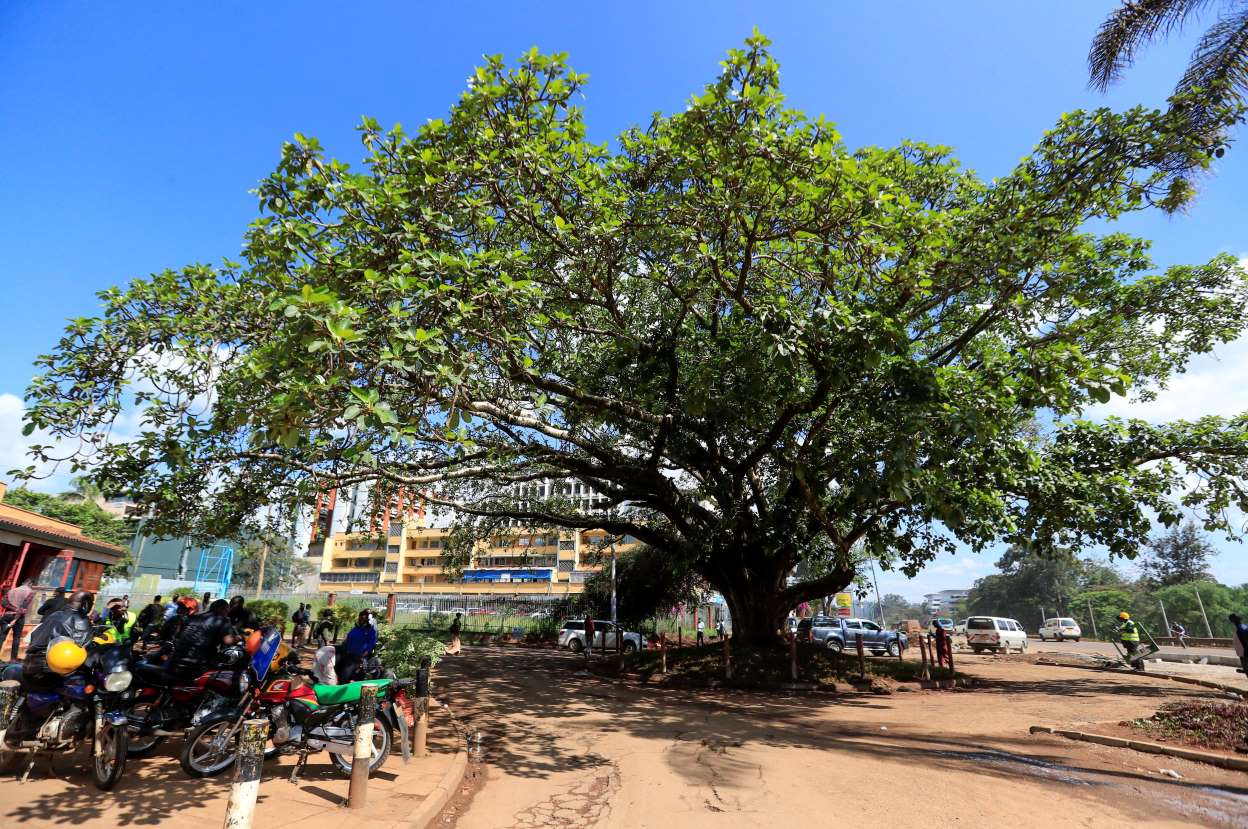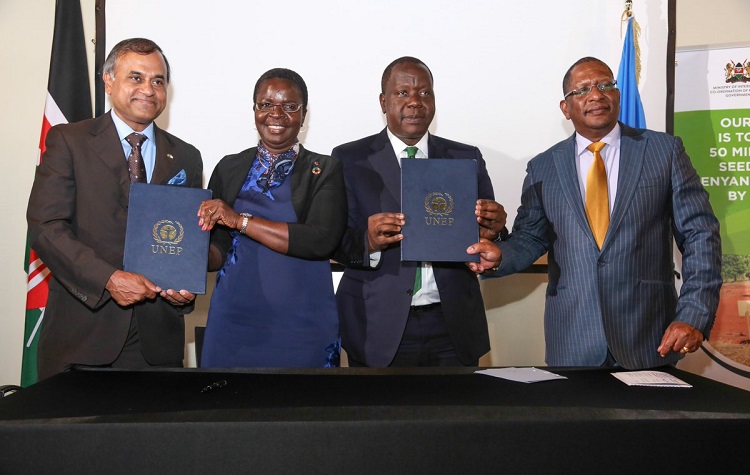
- Inspiring People -
- 5mins -
- 705 views
Kenyan president saves 100-year-old fig tree from highway
The President of Kenya, Uhuru Kenyatta, has issued a decree to save much-loved century-old fig tree from being cut down to make way for a Chinese-funded highway in the capital Nairobi.
100-yo fig tree a “beacon of Kenya’s cultural and ecological heritage.”
NAIROBI (Reuters) – Kenya’s President Uhuru Kenyatta has issued a decree to save a much-loved century-old fig tree from being cut down to make way for a Chinese-funded highway in the capital Nairobi.
The presidential decree described the tree, the height of a four-storey building, as a “beacon of Kenya’s cultural and ecological heritage.”
The fig tree is considered sacred among Kenya’s most populous ethnic group, the Kikuyu.
Environmentalists had been campaigning against the planned destruction of the tree, which stands on Waiyaki Way in the west of the city, where engineers are building the expressway above the existing road on pillars.
“It is now a presidential declaration that this tree will be conserved,” Mohammed Badi, director general of Nairobi Metropolitan Services (NMS), told a news conference next to the tree.
Continued below…
Source: Reuters

The tree will now stand as a sign of the Nairobi’s aspirations
The East African nation’s roads agency had said in October it planned to uproot and transplant it in order to erect a pillar to support the expressway.
The tree will be adopted by the NMS on behalf of the city’s residents and both the China Road and Bridge Corporation (CRBC) and the Kenya National Highways Authority have agreed to reroute the road.
The tree will now stand as a sign of the city’s aspirations, said Elizabeth Wathuti, a prominent Kenyan environmental activist.
“This particular fig tree is just a symbol of the bigger picture of what we are asking for. We want a green and clean city, and clean Kenya.”
Source: Reuters




Greening Kenya campaign aims for 10% tree cover by 2022
In 2019, a campaign christened “Greening Kenya” was launched with Kenya Prisons Services, the National Youth Service in collaboration with the United Nations Environment Programme jointly involved to grow and nurture 50 million tree seedlings.
While launching the campaign during the roundtable talks in Nairobi, the UN environment said Kenya has to work extra hard to fast track the constitutional requirement of 10% national forest cover by 2022.
According to the UNEP, Kenya is among the least forested countries in Africa with only 7% tree cover. This means that there are only 67 trees available per person against the global average and requirement of 420 trees.
However the Government initiated various strategies to achieve the required forest cover among them is the 2018 directive by the head of public service Joseph Kinyua that all parastatals to allocate 10% of their CSR budgets for tree seedlings.
“President Uhuru Kenyatta has made directives that all the colleges, universities, TVETS primary and secondary schools must allocate 10 percent of their land to tree planting,” Minister for environment Keriako Tobiko said.
While signing a Memorandum of understanding with ministries of environment, public service and the UNEP, interior cabinet secretary Dr. Fred Matiang’i said the project will kick off with 10 million tree seedlings at Ruiru prison through utilisation of the resources and opportunities available in the Government institutions.
The expected incomes include increased awareness of the Greening Kenya initiatives and the need to mobilise various stakeholders to achieving the 10% forest coverage in Kenya.
This in addition to agreement on a global framework for collaboration on land reclamation in the country as a contribution to the big four agenda as well as increased awareness of the UN Environment mandate and vision on a global land restoration.
The low forest cover in the country has been occasioned by massive deforestation in the main water towers among them Mau Forest.
Source: KBC


